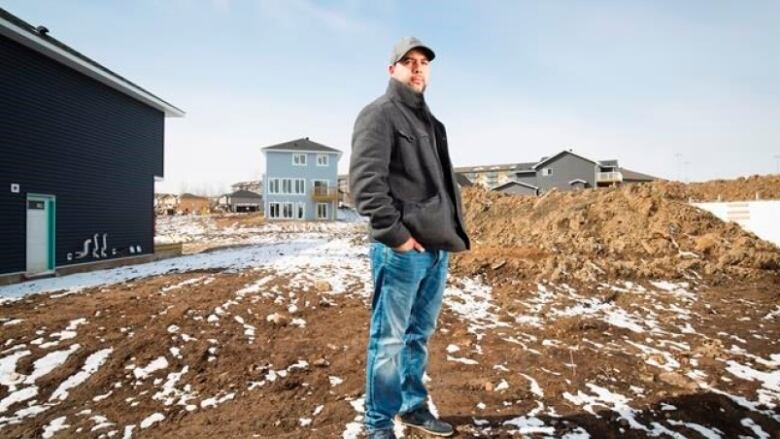'We are rebuilding:' Hope, uncertainty one year after Fort McMurray fire
'In the end, it's a silver lining trying to look at all the positives versus all the negatives'

Farid El-Hayouni and Ibtissam Saidi are almost certain they won't live on Prospect Drive again.
The couple had a duplex on the street in Fort McMurray's north end, where they lived with their three young sons and El-Hayouni's parents.
They loved the place.
They had a beautiful view of a nearby pond from their bedroom window and, on warm nights, their block would fill with the sounds of children playing.
But their home was one of nearly 2,600 dwellings destroyed in last May's wildfire.
'It's like a grave for me now'
The flames forced more than 88,000 to flee for safety and caused an estimated $3.8 billion in insured damage.
The rebuild of the oilsands city has lumbered along in the year since.
About 650 development permits have been issued representing 900 dwelling units about a third of what was destroyed.
About 33 families were living in rebuilt homes as of the start of April.
"We are rebuilding. It is happening," says Erin O'Neill, operations manager with the local recovery task force. "Demolition was done long ago ... We're glad to already see people moving home."
El-Hayouni, an engineer at an oilsands mine, and Saidi, a stay-at-home mom, are in limbo.
'I can't go back there'
They adore Fort McMurray and want to stay, but they feel drained even thinking about rebuilding where their home once stood.
"It's like a grave for me now," Saidi, 32, says as she holds her 15-month-old son Wassim on her lap.
"I can't go back there."
Though they haven't made a final decision, they're leaning strongly toward buying something that's already built elsewhere in the city.
When El-Hayouni returned to his property last June, there was little more to see than a pile of bricks and the skeleton of a child's bike.
Life since has been exhausting and stressful. Rent and mortgage payments total almost $6,000 a month and wading through their insurance claim has been a slog.
In the winter, after the family had already lost so much, El-Hayouni's father died.
For now, they're renting a spacious, light-filled house on a cul-de-sac a short drive from their old place.
The pair's two eldest sons Sohaib, 10, and Sofian, 7 go to an elementary school they can see from the living room. There's a field right behind their house where the soccer-obsessed boys can kick around a ball.
"Hopefully if everything goes perfectly, we will buy a place and just move on with our life," El-Hayouni says.
Down the hill from Abasand, the sound of the odd nail gun reverberates at one of only a handful of houses under construction. In an expanse of dirt, wooden spikes with house numbers painted on them are driven into the ground.
Waterways, Fort McMurray's oldest neighbourhood, faces particular challenges that have slowed the rebuild. One is how to manage future flood risk from the nearby Clearwater River. There are also concerns over slope stability because trees that held the soil together burned up.
'It tells you part of you is still here'
Shane Ganong had a 932-square-foot house from the 1930s in Waterways, where he lived with his wife Makayla, and daughters Eden and Isis, who are four and two. The heavy-duty mechanic spent a lot of his spare time building vehicles in his garage. A drift truck he toiled over for hours burned.
"It wasn't much," the 35-year-old says of the house he lost. "It was a little place, our first home. It was where we started our family."
Construction has begun on a modular house that Ganong aims to have installed on his lot, just outside the flood zone, in July. Funds paid out from his contents insurance are helping him upgrade to a house double the size of the old one.
"In the end, it's a silver lining trying to look at all the positives versus all the negatives."
Back in the north end of town, El-Hayouni pulls into his former subdivision.
He goes by there regularly to fetch mail from a Canada Post box left unharmed by the fire.
El-Hayouni says he once thought the area would never recover. But all around are new homes in various stages of completion some just wooden frames; some with siding attached.
"Every time I go there it does trigger something," he says.
"It tells you part of you is still here."












_(720p).jpg)


 OFFICIAL HD MUSIC VIDEO.jpg)
.jpg)



























































































